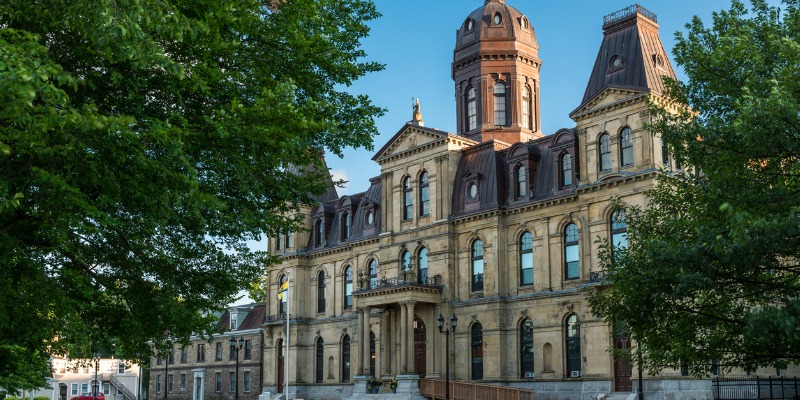New Brunswick takes small step toward ‘revenue-neutral’ carbon tax

New Brunswick Finance Minister Ernie Steeves recently announced that a portion of provincial carbon tax revenues will be used to lower income tax rates in the province. With this announcement, New Brunswick will now be the only jurisdiction in Canada that uses a share of carbon tax revenue to reduce other harmful taxes.
To better understand the significance of this development, consider the context. Last year, after initially opposing Ottawa’s federal “backstop” tax, New Brunswick decided to introduce its own carbon tax, which now applies to 20 types of fuels and is currently levied at $40 per tonne of CO2 (although it’s set to increase to $50 per tonne in 2022).
Setting a price on carbon is the most cost-effective way to reduce emissions, as it provides flexibility to individuals and businesses to either pay the price of emitting or find cheaper and innovative ways to reduce emissions. Critically, however, several key conditions must be met for carbon-pricing to be efficient (i.e. least costly).
The most important condition is “revenue neutrality,” which means that, to mitigate damage on economic growth, revenues from the carbon tax should be used to reduce other more harmful taxes such as personal and business income taxes—something several Scandinavian countries have done in the past.
In his recent announcement, Minister Steeves did just this. The province will use a portion of carbon tax revenues to fund a reduction in the lowest personal income tax rate, from 9.68 per cent to 9.4 per cent (paid on the first $43,385 of income). Additionally, the basic personal exemption—that is, the threshold amount on which no income tax is paid—will rise from $17,630 to $17,840. This will reduce provincial revenues by $28 million (while reducing personal income tax revenue by 1.6 per cent and total carbon tax revenue by 17 per cent) and provides tax savings to lower-income New Brunswickers, which is particularly important given the province’s personal income tax rates are among the highest in North America.
Albeit modest, this is a welcomed contrast to Ottawa’s flawed carbon-pricing plan. Currently, the federal government does not return revenues from the carbon tax in an efficient or growth-enhancing way, but instead recycles 90 per cent of it through lump-sum rebates.
But there’s some bad news. The Higgs government’s plan is not fully revenue neutral. Of the $163 million the carbon tax is estimated to raise this fiscal year, $36 million will be allocated to a “Climate Change Fund,” $12 million will go towards subsidizing a natural gas distributor, and $9 million will be given to First Nations (additional funds will go towards fuel tax reductions). Those may be worthy policy priorities on their own, but not using the full amount of revenue from the carbon tax to reduce other harmful taxes means it isn’t revenue neutral and therefore expands the overall tax burden in New Brunswick.
In other words, most of New Brunswick’s carbon tax revenue will either fund fuel tax reductions or subsidize “green” spending. But using carbon tax revenue to reduce tax rates on carbon-emitting products (gasoline, for example) undermines the effectiveness of the carbon-price signal. And using carbon tax revenue to subsidize environmental spending increases the cost of reducing emissions and defeats the original purpose of carbon pricing, which is to allow the market and prices to determine the right substitutes.
However, while imperfect, the Higgs government’s decision to use a portion of carbon tax revenue to fund personal income tax reductions is a step in the right direction. Following the lessons from other jurisdictions who’ve shifted from income to environmental taxation, New Brunswick should expand this approach by using all carbon tax revenue to reduce the already high tax burden on New Brunswickers.


